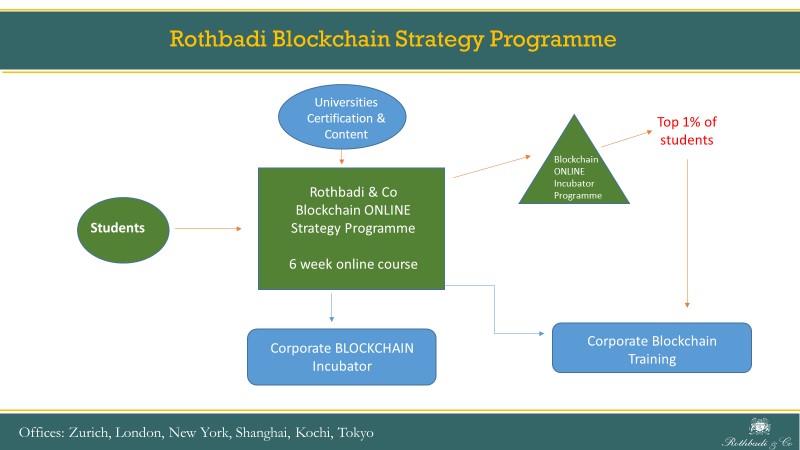
作者:Olinga Taeed教授-商务部中国电子商务区块链委员会委员、专家顾问
[嘉宾字节 – DigitalBytes 28 March 2021]
与人工智能、物联网、5G等其他第四次工业革命(4IR)技术不同,尽管加密市场价值去年增长了850%,超过1.5万亿美元,但12年后区块链仍未成为主流。亚马逊、Alexa、谷歌和苹果人工智能Siri控制着我们的家——音乐、暖气、门等等。在我残疾女儿的家里,物联网驱动的机器人为她送货,她的物联网门让他们在COVID-19大流行期间保持她的安全和健康。我的5G手机同时从我的房产中播放11个高清闭路电视视频,确保我的资产安全。我们的生活越来越依赖于4IR,但如果区块链明天就消失了呢?没有,绝对没有。世界不会注意到,也没有用户依赖——它没有在我们的生活中获得牵引。只有毒品和性贩子、勒索软件商人以及那些逃避政府公众监督(税收和资本外逃)的人会哀悼它的死亡。公民、企业和治理中心(Centre for Citizenship, Enterprise and Governance)首席执行官芭芭拉·梅利什(Barbara Mellish)曾任英格兰银行(Bank of England)支付委员会支付诚信和安全主管,负责英国3850亿英镑的日常交易。她说:“区块链尚未结出任何果实,对我们的日常生活产生影响。我听到你说“比特币”,但事实上,比特币只是全球金融世界的一个舍入误差。旧的企业遗留系统充分地为我们提供了固有的严格性和稳定性。区块链技术的利大于弊吗?
但是,像所有慈爱的父母一样,作为世界上第一个区块链教授,我对我们区块链孩子的成长感到沮丧,所以我们一直在研究阻碍我们成长和成熟的障碍,以及我们需要采取的行动来改变当前的轨迹。以下是7大建议,如果你不同意,请告诉我们!
- 贸易机构
本质上是分散的,这就存在一个组织我们自己的问题。目前有超过1000家交易所,其中Binance这样的交易所在24小时内的交易额通常接近300亿美元,但我们甚至没有一个行业代表机构。没有人支持,没有人回应政府和监管机构,或记者。中国没有自我监管,因此这可能使该行业面临外部过度监管。其他小得多的行业也有贸易协会,为什么我们没有呢?像Chandler Guo和Eric Gu这样的巨头是我们的顾问委员会成员,我们希望将这些鲸鱼聚集在一起,以提高加密行业的可信度。
2. 社会相关性
开始时有很多希望。像唐·泰普斯科特(Don Tapscott)、克里斯·拉尔森(Chris Larsen)等科技巨头谈到区块链技术改变了社会结构,但到目前为止,这四种区块链发烧友中唯一的赢家是投机者,另外三种(区块链是宗教,4IR未来主义者,以及“更快、更便宜、更高效”的旅)只能寄希望于此。区块链的运动是一个数字资产从a到B,但实实在在的钱等金融资产,黄金、土地和钻石并不是唯一的资产——大流行后的已确认对我们许多人来说,软无形的非金融资产,如爱、幸福、希望和善良,的确我们的健康,有更大的价值。现在影响我们的事情,气候变化,黑人生命重要,影响我们跨境贸易的政治,LGBTQ+,健康——我们无话可说。为此,我们最近在伦敦、迪拜和新加坡新成立的“代码意识形态研究所:总价值之家”(Institute of Ideology in Code: Home of Total Value)招募了25名大学实习生。我们相信,区块链凭借其在金融和非金融价值之间进行仲裁的能力,是我们实现联合国2030年可持续发展议程的关键,该议程代表了17种意识形态,我们可以通过使用区块链技术来编纂和交易。更重要的是,我们正致力于利用区块链,为世界经济论坛(World Economic Forum)撰写2021年达斯古普塔评论,英国央行(Bank of England)前行长马克•卡尼(Mark Carney)对人类价值与金融价值的看法,以及方济各教皇(Pope Francis) 2019年对弗朗西斯科(Francesco)的经济——所有3人都认为,GDP不再是我们衡量财富和交易财富的方式。
3. 标准的互操作性
区块链没有TCP/IP,同样由于区块链的去中心化,区块链之间没有共同的标准和互操作性。在Hyperledger(我们的14份开源白皮书)等方面已经有了一些崇高的尝试,但目前我们看到的是分歧而不是融合。随着现有区块链种类的增加,情况变得更加复杂和不一致,包括难以捉摸的分叉和分裂,以及令人眼花缭乱的新工具,如ICO、IEO、STO、DeFi、NFT等,随着行业不断地寻找一些持久的东西,这些工具的涨落急剧上升。事实上,我们没有谷歌、Facebook、亚马逊的区块链——我们没有技术存在的理由,也没有大马士革的经验无可辩驳地向街上的人证明我们为什么需要它,就像互联网一样。TCP/IP是我的朋友Vint Cerf在70年代中期发明的,而谷歌是在大约25年后的1998年创建的。我们认为,我们只需要时间,到2030年,我们将会到达那里,如果不是更快的话,尽管根据中田聪2008年的论文,我们计划在2020年中期到达那里。
4. 扩展应用程序
我们需要能够指向一个规模化的主流行业应用,不仅要向世界展示我们可以做什么,而且要像一个非常大的高调的沙坑,来试验我们的区块链生态系统,而不仅仅是单个的产品解决方案。在英国努力这我们忙于创建一个£2.1亿DLT银行宣布在2020年12月在迪拜,2700年供应链和采购联盟组织在内罗毕,5克电动车社区充电解决方案,和最近宣布与潜在的石油和天然气行业的区块链平台建立的公司在伦敦证券市场上市。请不要再提这些小问题了,这不会让我们有任何进展,当然,即使是这些项目也很难在商业意义上缩小它们的领域,但确实证明了区块链的能力。
5. 学术研究
当然,像我这样的学者,在我们的方法中是行人,努力跟上蓬勃发展的区块链世界。然而,所有严肃的领域都借鉴了激烈的学术研究的严谨性,这些研究是不分党派的,没有议程,通过同行评审的期刊,如区块链《前沿》(Frontiers),这些期刊有490名编辑。对于零售读者,我们今年将重新推出《社会价值与无形资产评论》,以简单的语言解释区块链在非平凡情况下的好处。如果没有学术研究,世界就无法应对COVID-19。
6. 机构合作
政府和大公司并不像人们通常认为的那样是区块链的敌人,实际上他们将是采用区块链的主要代理人。Facebook Libra不仅是一个备受瞩目的联盟的失败,也是一个行业的失败,因为我们没有支持第一家推动这项技术的大公司;它并不完美,但我们都迷失在那一个。我们为中国政府在2020-21年试点的数字元CBDC项目表示赞赏,并通过“中国电子商务区块链委员会”向中国商务部提出建议。作为一个部门,如果我们要推动采用,我们必须接受这样的项目。能够在机构层面上运作的咨询公司非常缺乏,我们位于苏黎世的Rothbadi和伦敦的区块链团队就是罕见的例子,但我们需要行业中更严肃的参与者。
7. 全球的声音
媒体的高度关注突出了单一接触点的缺乏,以代表一种令人困惑的技术。这个行业是否需要一个“伟大而善良”的声音来回应批评、监管机构、询问等等?我们为该行业整理了一份新的尚未发布的期刊,名为《Token:加密货币、价值和价值》(the Token: Cryptocurrency, Value and Values),以代表我们作为一个整体,而不是一个特定的行业。自2008年以来,我们为世界制定了区块链愿景(中英文版本),包括公共、私人、公民社会和社区等各个领域,并希望有一天区块链将成为改善我们生活的世界的核心驱动力
像所有的孩子一样,他们最终会开花结果,而且很多孩子在成长过程中会经历成长的痛苦和磨难。区块链技术提供了很大的潜力,并且经过精心培养,也没有那么大肆宣传和喧闹,就像任何孩子提供的独特能力,我们才刚刚意识到。




















